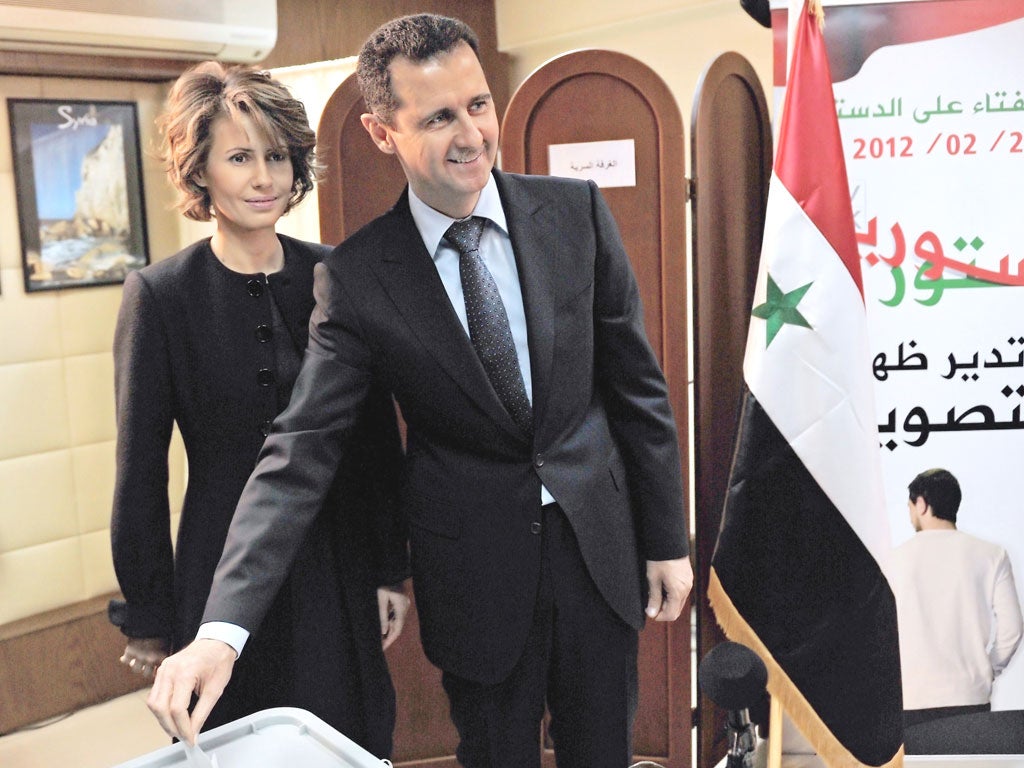'They killed my boy and left him in a ditch as if he meant nothing'

They came for Ismail Abu Jabar at 3am, the secret police, the soldiers and an informer in a balaclava. The home was ransacked; there was a ritual beating in front of his terrified, weeping wife and little children and then he was dragged off, never to see his family again.
The treatment received during the next two months in captivity left the 34-year-old farmer with injuries to his head, broken ribs and seared burns to his back and stomach. There was little questioning: "They just enjoyed giving pain" he recalled. "They accused me of a lot of things, of being a traitor. My guilt was already decided."
Mr Jabar had been guilty of asking for reform: "We weren't calling for a revolution, for Assad to be hanged, not at that time. All we wanted was that the people should be heard."
The vote that Mr Jabar and others called for was supposedly taking place in Syria yesterday in a referendum on a new constitution. Bashar al-Assad declared it will "take the country to a new era of co-operation with the full spectrum of Syrians and draw a brilliant future for next generations".
But here in Idlib province the referendum is seen as a grotesque joke. It is not just the dead and the disappeared who have been disenfranchised; even if anyone did want to vote in this region fiercely resistant to the regime, they would have found it hard to find any of the 14,000 polling stations that the Interior Minister, Lt-Gen Mohammed al-Shaar, claimed have been set up around the country.
"The voting room must be over there," Mr Jabar said, pointing in a direction where steady machine-gun fire and occasional mortar rounds were coming from troops attacking a rebel base on a hillside near Darkush, where we were meeting. "If you are trying to find somewhere to vote, you will have to go past checkpoints. A good way to catch people they are after."
When Mr Jabar was freed he returned to his home to find his wife, Rahima, and four daughters, aged between four months and 11 years, missing. Friends had moved them after his arrest: it was felt they were vulnerable because he was a political detainee. The car they were travelling in was stopped at a roadblock and they have not been seen since.
"I feel helpless that I cannot protect my family," he said.
For Obeida um Khalifa the uncertainty is over; all that is left is grief. Contemplating President Assad's pledge of a "brilliant future for next generations" would only bring more tears. Her 19-year-old son, Hamza, was stopped at a checkpoint near the village of Basanqut a month ago. He was hit with rifle butts, thrown into a car and driven away.
"I think it was eight days later we found his body. They had killed my boy with a gun and left him in a ditch as if his life meant nothing, as if he was worthless," she says.
Subscribe to Independent Premium to bookmark this article
Want to bookmark your favourite articles and stories to read or reference later? Start your Independent Premium subscription today.

Join our commenting forum
Join thought-provoking conversations, follow other Independent readers and see their replies